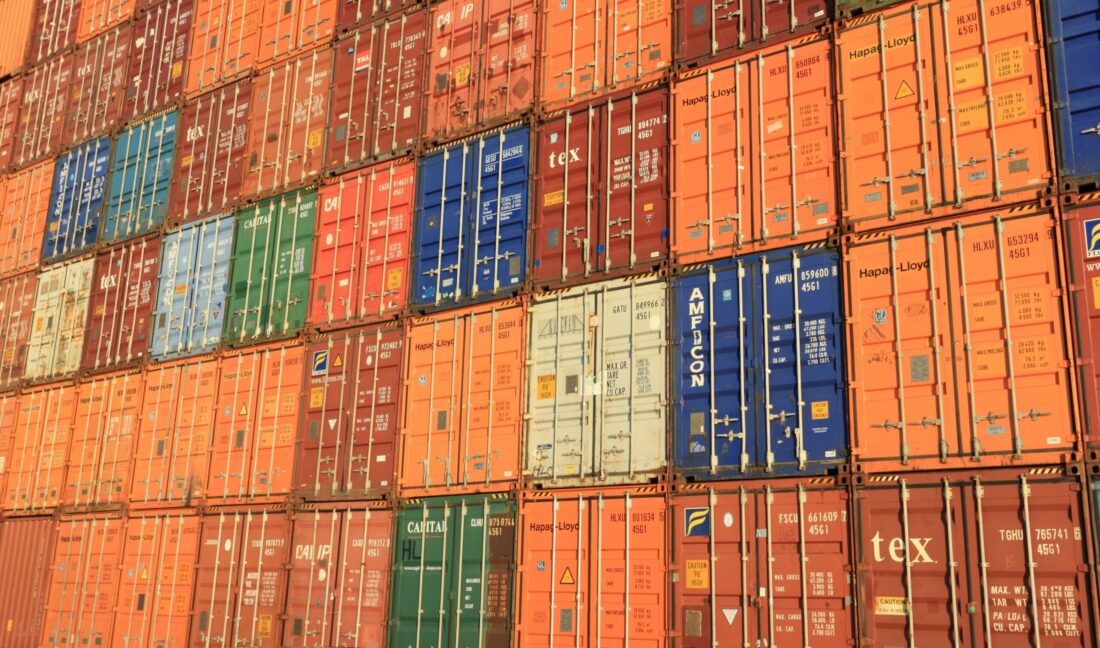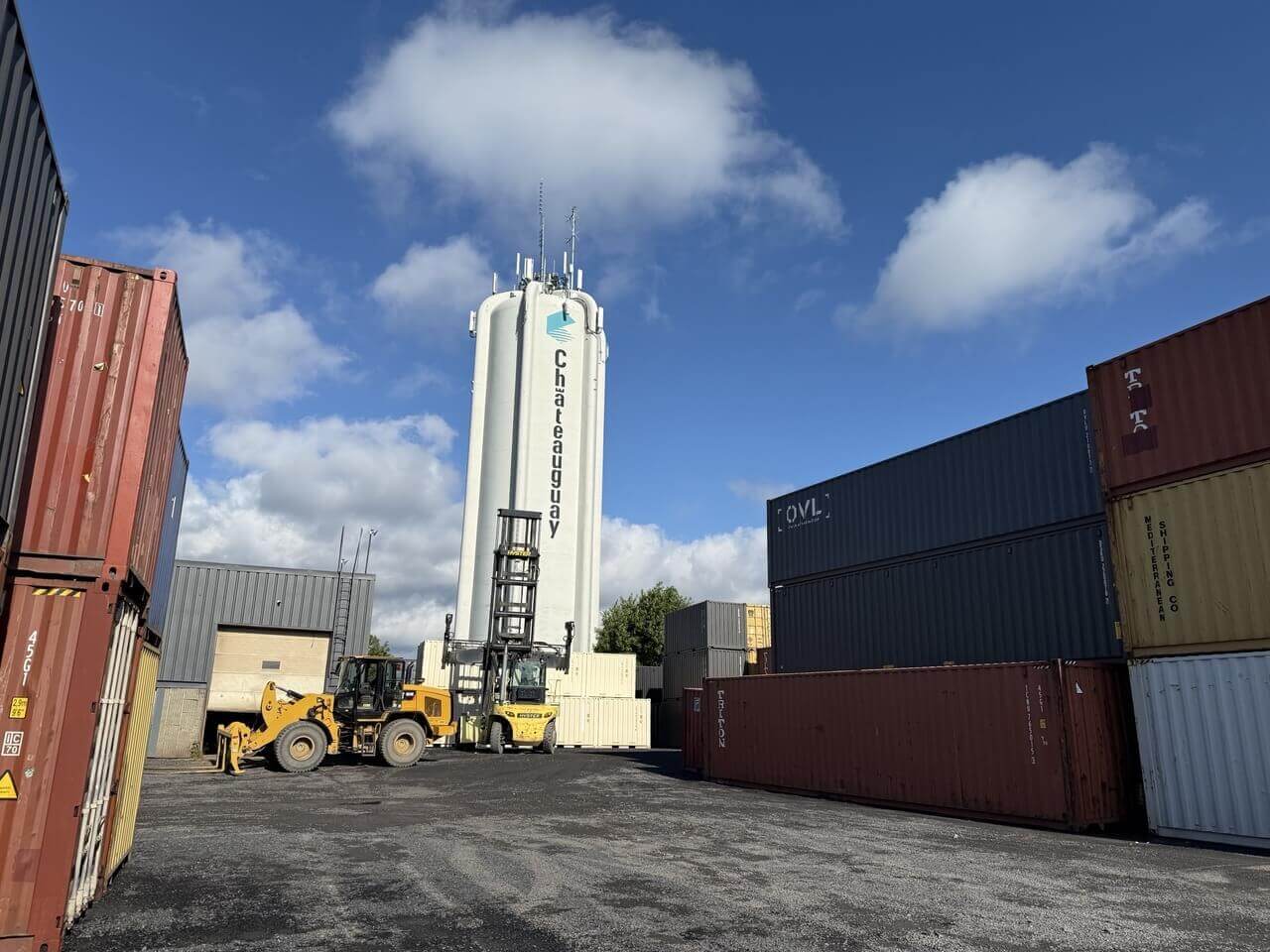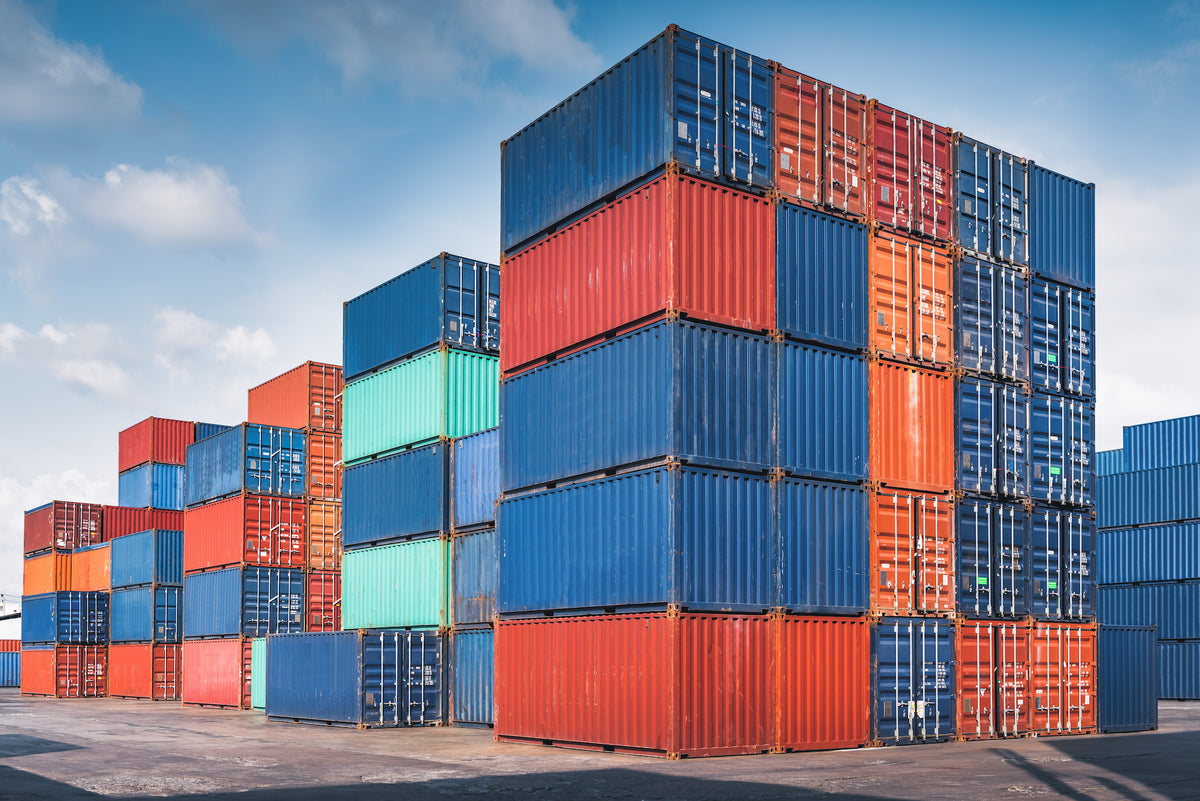12 creative ways to repurpose Shipping Containers in business
Every little thing You Need to Learn About Shipping Containers and Their Practical Applications
Shipping containers have developed from plain tools for transportation to versatile frameworks with countless sensible applications. Their durable design and standard sizing make them optimal for an array of usages past shipping. From cutting-edge real estate services to lasting farming, their versatility is notable. The possibilities do not finish there. Exploring their numerous functions reveals shocking insights right into creative services and modern challenges. What various other roles could these containers play in today's world?
The Design and Framework of Shipping Containers

Inside, containers are made to take full advantage of space, frequently featuring wood or steel floor covering that can support considerable weight. Air flow systems may be integrated to protect against wetness build-up, which is crucial for delicate freight. Additionally, reinforced edges enable simple handling by cranes and forklifts, promoting seamless loading and unloading. This thoughtful layout and structure add to the containers' versatility throughout various shipping and storage space applications.
Benefits of Making Use Of Shipping Containers
While many transportation approaches have their benefits, making use of shipping containers stands apart because of their unparalleled adaptability and efficiency. Shipping containers provide a standardized dimension, making them easy to pile and deliver across numerous modes of transportation, consisting of trains, ships, and trucks. This standardization lowers packing and dumping times, therefore increasing total efficiency.
Shipping containers are created from resilient products, providing durable protection for goods throughout transit. They are safe and weather-resistant, minimizing the danger of damages from environmental variables or theft. Furthermore, the modular design of shipping containers enables simple customization, making it possible for companies to adjust them for various functions, such as storage or mobile workplaces.
Finally, their portability and cost-effectiveness make shipping containers an appealing option for organizations looking to improve logistics and supply chain procedures. These advantages add to the expanding popularity of shipping containers in different sectors.
Imaginative Real Estate Solutions With Shipping Containers
Ingenious housing remedies have actually become an interesting application of delivery containers, leveraging their intrinsic staminas for property use. These versatile structures use a lasting choice to conventional structure materials, frequently at a portion of the price. Designers and designers have changed containers right into fashionable, practical homes, dealing with diverse lifestyles and preferences.

Shipping containers are eco pleasant, advertising recycling and decreasing waste. Lots of tasks concentrate on energy effectiveness, including photovoltaic panels and environment-friendly roofs. As urbanization boosts, these ingenious real estate solutions offer a functional action to housing shortages while promoting a distinct building aesthetic.
Shipping Containers in Retail and Pop-Up Shops
An expanding number of merchants are turning to shipping containers as a vibrant remedy for pop-up shops and retail rooms. These flexible structures supply an affordable option to conventional stores, enabling services to develop one-of-a-kind, appealing environments that bring in consumers. Their modular design allows simple transportation and setup, making them excellent for seasonal or momentary retail places.
Merchants can customize delivery containers to reflect their brand identity, changing them right into visually appealing shops that stick out in congested marketplaces. The small nature of containers also urges effective use space, permitting creative layouts that maximize customer circulation and engagement. Furthermore, delivering containers can be positioned in unique places, such as metropolitan parks or uninhabited whole lots, enhancing access and foot web traffic.
As the retail landscape evolves, delivering containers provide a flexible and cutting-edge service that fulfills the demands of contemporary customers while boosting the shopping experience.
Lasting Farming Practices Using Shipping Containers
Lasting farming methods increasingly include shipping containers as ingenious options for farming - shipping container storage. These container ranches utilize hydroponics to optimize area and source performance, offering a cost-efficient approach to food manufacturing. By transforming shipping containers into agricultural centers, farmers can resolve food protection and environmental problems all at once
Container Farming Benefits
While traditional farming faces challenges such as land shortage and climate adjustment, container farming presents a viable alternative that maximizes area and sources. This innovative method enables year-round crop production in controlled environments, reducing reliance on climate condition. Container farms make use of much less water than standard farming, promoting sustainability and conservation. They can be established in metropolitan locations, bringing fresh produce closer to customers and decreasing transportation exhausts. Furthermore, the modular nature of delivery containers makes it possible for scalability, enabling farmers to adjust procedures based upon demand. Container farming also lessens pesticide usage by creating an enclosed environment, eventually enhancing food safety. As metropolitan populaces grow, container farming emerges as a functional solution to meet the increasing need for Bonuses local, lasting food sources.
Hydroponics in Containers
Hydroponics, which allows plants to expand without dirt by using nutrient-rich water, flourishes within the confines of delivery containers, making it an excellent approach for urban agriculture. These containers create a controlled environment that maximizes temperature, humidity, and light, making it possible for year-round growing. With limited area in metropolitan areas, shipping containers offer a scalable service for expanding fresh produce. Hydroponic systems within containers can consist of different methods, such as nutrient movie method (NFT) and deep water society (DWC), which maximize yield while reducing water use. This cutting-edge technique not only enhances food protection yet likewise reduces the carbon impact related to standard farming techniques. Hydroponics in containers represents a forward-thinking option for lasting urban food manufacturing.
Cost-efficient Agriculture Solutions
As food production faces increasing challenges as a result of environment adjustment and urbanization, shipping containers become an affordable solution for farming. These functional structures can be repurposed for numerous lasting farming practices, such as hydroponics and vertical farming. By making use of regulated atmospheres within containers, farmers can optimize growth cycles and lower source intake, including water and plant foods. Furthermore, shipping containers can be strategically positioned in city areas, lessening transport expenses and boosting access to fresh produce. Their modular nature enables for scalability, allowing farmers to expand operations as need grows. Repurposing click containers contributes to lose decrease, aligning with green farming efforts. On the whole, delivering containers existing innovative opportunities for sustainable and effective food production.
Emergency Situation and Disaster Alleviation Applications of Shipping Containers

Organizations frequently utilize shipping containers to create mobile facilities or area hospitals, making sure that healthcare gets to those in need. In addition, they can be changed into command centers for working with rescue operations, thus improving organizational efficiency throughout dilemmas.
Moreover, containers can be modified to keep important goods such as food, garments, and water, safeguarding products up until they are his response distributed. Their mobility allows them to be quickly delivered to numerous places, making certain that aid gets here where it is most urgently needed. On the whole, delivery containers play a crucial function in boosting the effectiveness of disaster relief campaigns worldwide.
Frequently Asked Concerns
How Are Shipping Containers Transported From One Area to An Additional?
Shipping containers are transported by means of ships, vehicles, and trains, making use of cranes for dumping and filling. This multi-modal transportation system makes sure efficient movement across land and sea, attaching global supply chains and promoting worldwide profession.
What Is the Average Life-span of a Shipping Container?
The ordinary life expectancy of a shipping container generally ranges from 10 to 25 years, depending on upkeep, usage, and ecological factors. Correct treatment can expand their usability, while overlook might bring about degeneration and damages.
Can Shipping Containers Be Modified for Various Usages?
Yes, shipping containers can be modified for different usages. They work as homes, workplaces, pop-up stores, and storage devices. Their adaptability permits innovative adaptations, making them appropriate for a broad range of applications.
Are Shipping Containers Environmentally Friendly?
Shipping containers can be ecologically pleasant, as they advertise repurposing and recycling. Their toughness lowers waste, while their use in alternative real estate and organizations reduces the requirement for brand-new products, adding to sustainable methods.
Just how Do I Select the Right Size Shipping Container?
To pick the appropriate dimension shipping container, one have to examine storage space needs, take into consideration the designated use, and examine room schedule - sea can for sale. Typical dimensions consist of 20-foot and 40-foot containers, each serving numerous storage and transportation needs effectively
Innovative real estate services have actually emerged as an interesting application of delivery containers, leveraging their integral staminas for household usage. The versatility of delivery containers allows for imaginative designs, from single-unit homes to complex multi-container setups. Sustainable farming methods significantly include delivery containers as innovative options for agriculture. Furthermore, the modular nature of delivery containers makes it possible for scalability, permitting farmers to readjust procedures based on demand. Hydroponics, which allows plants to expand without soil by using nutrient-rich water, thrives within the confines of delivery containers, making it a suitable technique for urban agriculture.